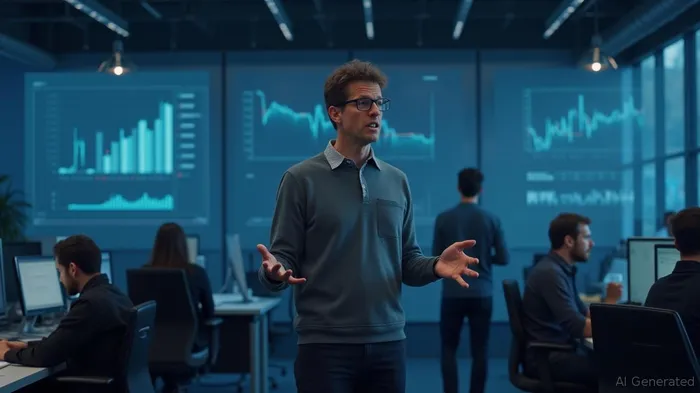OpenAI CEO Altman Predicts AI Breakthroughs by 2026
OpenAI's CEO, Sam Altman, recently shared his vision for the future of artificial intelligence (AI) in an article titled "Gentle Singularity." The article provides a futuristic outlook on how AI will transform various aspects of human life over the next 15 years, emphasizing the potential of general AI (AGI) while downplaying its immediate impact. Altman's writings often paint a vivid picture of how AGI could revolutionize modern work, energy systemsELPC--, and social contracts, and they frequently contain subtle hints about the company's future development plans.
In his latest article, Altman highlighted that by 2026, the world is likely to see the emergence of AI systems capable of generating entirely new insights. While this statement is somewhat vague, recent comments from OpenAI executives suggest that the company is actively working on developing AI models that can produce novel perspectives about the world. For instance, in April, co-founder and president Greg Brockman announced the release of the O3 and O4-mini AI reasoning models, claiming that these models represent the first time scientists have used AI to generate valuable new ideas.
Altman's blog post implies that OpenAI may intensify its efforts to develop AI with innovative insights over the next year. However, this is not an exclusive endeavor for OpenAI. Several competitors are also focusing on training AI models that can assist scientists in formulating new hypotheses, thereby gaining fresh insights into the world. This competitive landscape underscores the rapid advancements and growing interest in AI's potential to drive groundbreaking discoveries and innovations.
The article also touches on the potential of AI to revolutionize various sectors, including healthcare, education, and transportation. Altman envisions a future where AI systems can provide personalized medical treatments, enhance educationalEDUC-- experiences, and optimize transportation networks. These advancements, he argues, will not only improve the quality of life but also address some of the most pressing challenges facing humanity.
However, Altman also acknowledges the challenges and ethical considerations that come with the development of AGI. He emphasizes the need for responsible innovation, ensuring that AI systems are developed and deployed in a manner that benefits society as a whole. This includes addressing concerns about job displacement, privacy, and the potential misuse of AI technologies. Altman's vision for a "gentle singularity" suggests a future where AI and humans coexist harmoniously, with AI augmenting human capabilities rather than replacing them.
In conclusion, Altman's article provides a compelling vision for the future of AI, highlighting its potential to transform various aspects of human life while also acknowledging the challenges and ethical considerations that come with its development. As OpenAI and its competitors continue to push the boundaries of AI technology, the world is likely to witness significant advancements in the coming years, paving the way for a future where AI plays a central role in driving innovation and progress. 
Stay ahead with the latest US stock market happenings.
Latest Articles
Stay ahead of the market.
Get curated U.S. market news, insights and key dates delivered to your inbox.



Comments
No comments yet